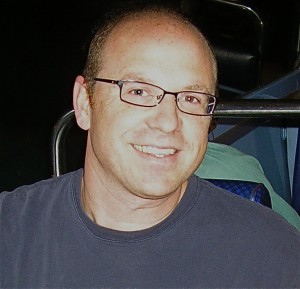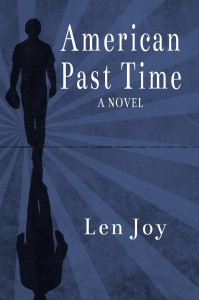 Aaron Tillman is an Assistant Professor of English at Newbury College. He received a Short Story Award for New Writers from Glimmer Train Stories and won First Prize in the Nancy Potter Short Story Contest at University of Rhode Island. His short story collection, The Cross-Eyed Monkey Cabaret, was selected as a finalist in the 2013 Autumn House Press Short Fiction Competition and the 2013 Santa Fe Writers Project Awards. His fiction has appeared or is forthcoming in Prick of the Spindle, great weather for MEDIA, theNewerYork, The Carolina Quarterly, The Drum Literary Magazine, Opium Magazine, The Ocean State Review, Scrivener Creative Review, Burrow Press Review and Glimmer Train, and he has recorded two stories for broadcast on the Words & Music program at Tufts University. His essays have appeared in Studies in American Humor, Symbolism, The CEA Critic, and The Intersection of Fantasy and Native America (Mythopoeic 2009).
Aaron Tillman is an Assistant Professor of English at Newbury College. He received a Short Story Award for New Writers from Glimmer Train Stories and won First Prize in the Nancy Potter Short Story Contest at University of Rhode Island. His short story collection, The Cross-Eyed Monkey Cabaret, was selected as a finalist in the 2013 Autumn House Press Short Fiction Competition and the 2013 Santa Fe Writers Project Awards. His fiction has appeared or is forthcoming in Prick of the Spindle, great weather for MEDIA, theNewerYork, The Carolina Quarterly, The Drum Literary Magazine, Opium Magazine, The Ocean State Review, Scrivener Creative Review, Burrow Press Review and Glimmer Train, and he has recorded two stories for broadcast on the Words & Music program at Tufts University. His essays have appeared in Studies in American Humor, Symbolism, The CEA Critic, and The Intersection of Fantasy and Native America (Mythopoeic 2009).
Aaron, these opening chapters of The Voice of Artland Rising represent the starting points of dual narratives, chronicling the circus life of Berni and her magically talented son, Artland. Do their stories continue to unravel sequentially as the novel continues?
Unravel is really the right word – a lot of that taking place here. And yes, the unraveling happens in what I’ve been calling co-chronological order, leading toward and away from the events at Bean Hollow State Beach where Artland’s supernatural abilities first appear (publically, at least). The novel shifts between the Before Bean Hollow chapters—tracking Berni’s tumultuous early adulthood, including Artland’s birth and formative childhood—and the After Bean Hollow chapters, where Berni and her lover, Seymour, work to conceal and to exploit Artland’s extraordinary new talents, anxious for him to appear “just like everyone else—only more!”


